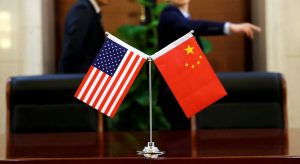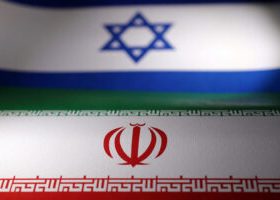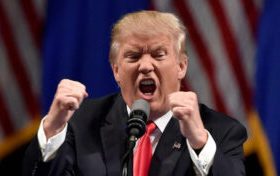WASHINGTON – The United States and China have delivered big wins in climate diplomacy through the unique relationship of their chief climate envoys, but the two countries are bracing for change as the Chinese envoy retires and the U.S. readies for an election.
In an interview with Reuters, U.S. Special Climate Envoy John Kerry was vague about his plans for the future.
“No matter what, I am going to try to do what works best,” he said after last week’s U.N. climate summit, COP28, in Dubai. “I haven’t made any decisions about anything, and I will continue as long as God gives me the breath and work on it one way or the other.”
The COP28 summit’s final deal also marked the last official action by Kerry’s longtime ally – China’s ailing 75-year-old climate envoy, Xie Zhenhua, who had guided China’s international climate talks for 16 years.
The deal’s success came partly from a U.S.-China proposal – brokered by the two sides a month earlier during a bilateral meeting in California. In that so-called Sunnylands agreement, Kerry and Xie ditched a controversial call to “phase out” fossil fuels, and used a new phrase that essentially meant the same thing – “accelerate the substitution for coal, oil and gas generation.”
That new phrasing, used alongside a joint pledge to boost renewable energy, evolved into the COP28 deal’s central call for countries to triple renewable energy capacity as a way of “transitioning away from fossil fuels.”
The Sunnylands pact ended up being “very important” at COP28, Kerry told Reuters. We “created something different in the air.”
That unique U.S.-China cooperation on climate change has also been key to driving climate action globally, as policies set in the world’s two largest economies – and biggest polluters – can impact energy trends internationally.
But the momentum could be challenged if Kerry’s boss, President Joe Biden, loses next year’s U.S. election. With the vote still 11 months away, Biden’s biggest challenge is coming from former President Donald Trump – a vocal climate denier who scuppered U.S. climate diplomacy for years.
“Despite the divergent national interests they represent, Kerry and Xie share the firm belief that to solve the climate crisis the U.S. and China need to engage with each other,” said Li Shuo, incoming director of the China Climate Hub at the Asia Society.
“For the ones coming after them, the drive will be bumpy,” Li said.
CHINA READIES FOR CHANGE
Whichever way the White House vote swings, China is readying a new climate diplomacy effort and is expected to announce Xie’s replacement as the English-speaking diplomat Liu Zhenmin, who once worked as China’s deputy foreign minister.
Described as “affable” by one former colleague, Liu shadowed Xie at COP28, meeting national delegates, offering several speeches on China’s green energy achievements, but otherwise remaining tight-lipped with journalists.
Liu later told the Chinese financial news outlet Caijing that he had participated in COP28 as “an old comrade” in climate talks and described the broader negotiating team.
“Our negotiators are very young, and this is a good thing,” he is quoted as saying in the interview published on Monday. “Addressing climate change requires not only old comrades, but also for the young generation to participate more and better.”
Some COP28 observers questioned whether his foreign ministry background might mean China would seek to align its climate plans more closely with its foreign policy objectives.
Kerry also has a foreign policy background, having served as the U.S. secretary of state under President Barack Obama.
Foreign policy issues have previously dogged climate relations, most notably in 2021 after U.S. Rep. Nancy Pelosi visited Taiwan as the House Speaker and declared U.S. support for the self-governing island claimed by China.
But the two sides continued to talk climate, with Kerry insisting on separating the issue from other disputes. China and Liu have said recently, however, that climate talks cannot be a diplomatic “oasis.”
After his term in China’s foreign ministry, Liu was appointed in 2017 as under-secretary-general at the U.N. Department of Economic and Social Affairs (UN-DESA), with a broad brief that touched on climate change. He also helped China negotiate both the 1997 Kyoto Protocol and the 2015 Paris Agreement on climate change.
Two former Western diplomats familiar with Liu’s work predicted he would do well as China’s climate envoy – having deep experience in climate issues and in multilateral negotiations.
Still, Xie will be a tough act to follow, one diplomat said. “Xie has this human warmth, hugging and embracing people, which is very rare in China. No one in the negotiating community has anything close to the respect of Xie.”
PERSONAL DIPLOMACY
During his interview with Reuters, Kerry emphasized his achievements with Xie, a Communist Party technocrat with a background in engineering.
The warmth between Kerry and Xie, built over some 60 face-to-face meetings, helped broker agreements including the 2015 Paris deal and a bilateral deal that helped countries agree at COP26 in Glasgow to “phase down” coal use.
“We did more than plant the seeds for future cooperation,” Kerry told Reuters.
“We created a working group. We agreed to a process and created an institutional structure,” he said. “There is a process in place going forward.”
That process could be jeopardized if Trump retakes the U.S. presidency. One of Trump’s signature acts was to pull the U.S. out of the Paris Agreement.
China shifted its diplomatic focus on climate toward U.S. states like California, with former Governor Jerry Brown visiting China’s President Xi Jinping in 2017. Chinese provinces and U.S. states also collaborated on climate research and diplomatic exchanges.
Brown told Reuters this year that those subnational partnerships helped to keep the U.S.-China climate relationship alive under Trump.
China’s outgoing Xie sought to reassure at COP28 that the commitment to climate cooperation remained strong, acknowledging that it “also played a role in improving the complicated bilateral relationship between China and the United States.”
He and Kerry made several appearances together, with Xie warmly wishing Kerry a happy 80th birthday.
“Neither of us will leave this community or depart from this great cause,” Xie told reporters in a summit briefing. “Both of us will continue to make contributions and efforts to bring this process forward.” — Reuters







